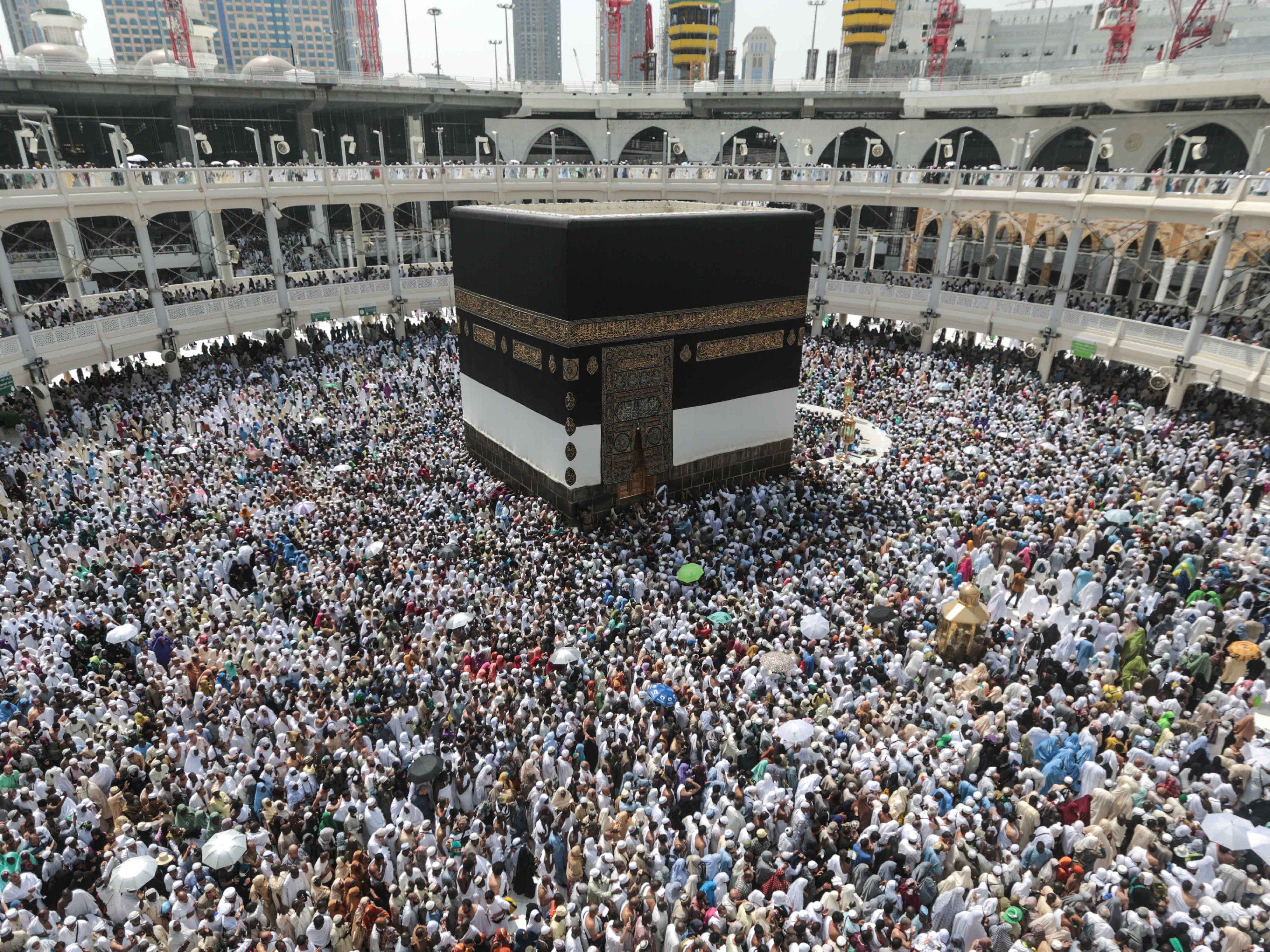
By: Abdullahi Ahmed An-Na’im, The Conversation
The media coverage of the terrorist atrocities of Friday November 13 in Paris would seem to promote an almost mythical image of the Islamic State (ISIS). What humanity needs, however, is to demystify ISIS as a criminal organization. And that need is particularly important in my community – the Muslim community.
The vast majority of Muslims almost certainly (we do not have exact figures) feel moral revulsion and outrage about the violence perpetrated by ISIS. Indeed, Egypt’s top Sunni cleric, to name just one example, was quick to denounce the perpetrators of Friday’s “hideous and hateful” attacks.
However, the truth of the matter is that ISIS leaders and supporters can and do draw on a wealth of scriptural and historical sources to justify their actions.
Traditional interpretations of Sharia, or Islamic law, approved aggressive jihad to propagate Islam. They permitted the killing of captive enemy men. They allowed jihadis to enslave enemy women and children, as ISIS did with the Yazidi women in Syria.
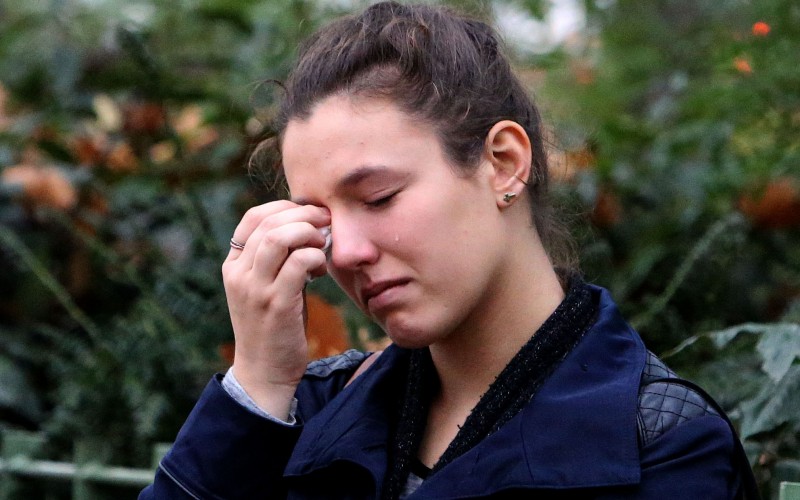
catholicherald.co.uk
Catholic leaders around the world condemned terrorist attacks in Paris and Beirut, offering prayers and condolences. "The time has come for the world to stand united against terrorism and to confront the reasons of terrorism, such as feelings of oppression, hatred, bad education and fanaticism, with no double standards,” said the Jerusalem-based Assembly of Catholic Bishops of the Holy Land.
They called for a unification of “forces of good” and “countries and followers of all religions against violence, which hits the world with increased brutality.” Otherwise, they said, it will hit everyone “sooner or later.” “We express our full solidarity with the French and Lebanese peoples and with the victims of terrorism and their families in Paris and Beirut and worldwide,” they said. “We pray to the almighty for healing the wounded and consoling those who are grieving,” they added. “We pray also for terror preachers and promoters so they backtrack and regret what they do.” In Beirut, the Assembly of Catholic Patriarchs and Bishops in Lebanon concluded its meeting on November 14, a day after multiple terror attacks in Paris left at least 129 people dead and wounded hundreds more and two days after a twin suicide bombing in Beirut’s southern suburbs killed at least 46 people and wounded more than 200. Islamic State claimed responsibility in both cases.
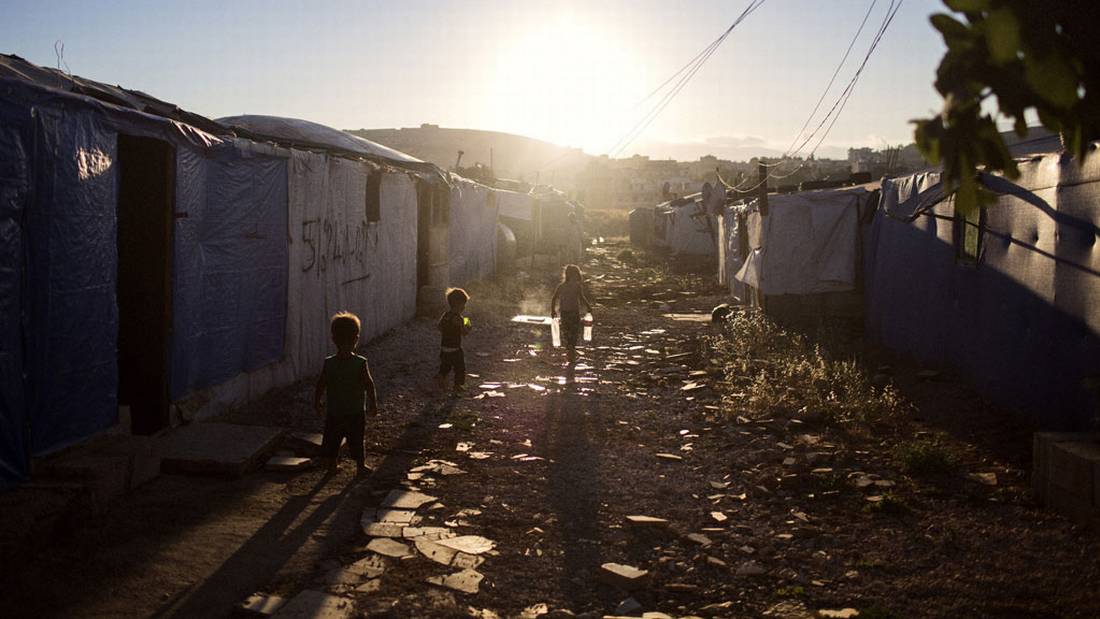
theglobeandmail.com
It’s like a prison,” Akaber Mohammed says of her family’s life as refugees in Lebanon. “No, it’s a coffin,” her husband, Khaled al-Lawz, counters. “And I’m suffocating inside it.”
Even before the Paris attack, the 1.1 million registered Syrian refugees in Lebanon – many of whom are among the poorest of those fleeing their homeland’s civil war – lived in an increasingly precarious limbo. Now, the bloodshed unleashed in France by Islamic extremists is deepening European fears of Muslims and threatening to create an atmosphere even less welcoming for those fleeing war in the Middle East.
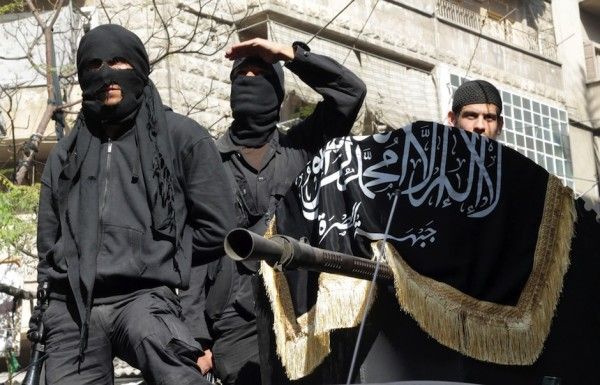
by
The Al-Qaida linked al-Nusra Front has demanded control over two towns held by the Syrian regime near Lebanon and the release of five women from Lebanese jails in return for freeing the captive Lebanese servicemen, a spokesman for the families of the Lebanese hostages said on Monday.
“Al-Nusra’s emir in Syria’s Qalamoun, Abou Malek al-Talli, has sent a new demand with the families who visit their sons every now and then in the vicinity of (the Lebanese border town of) Arsal,” Hussein Youssef, the father of captive soldier Mohammed Youssef, told Turkey’s state news agency Anatolia.
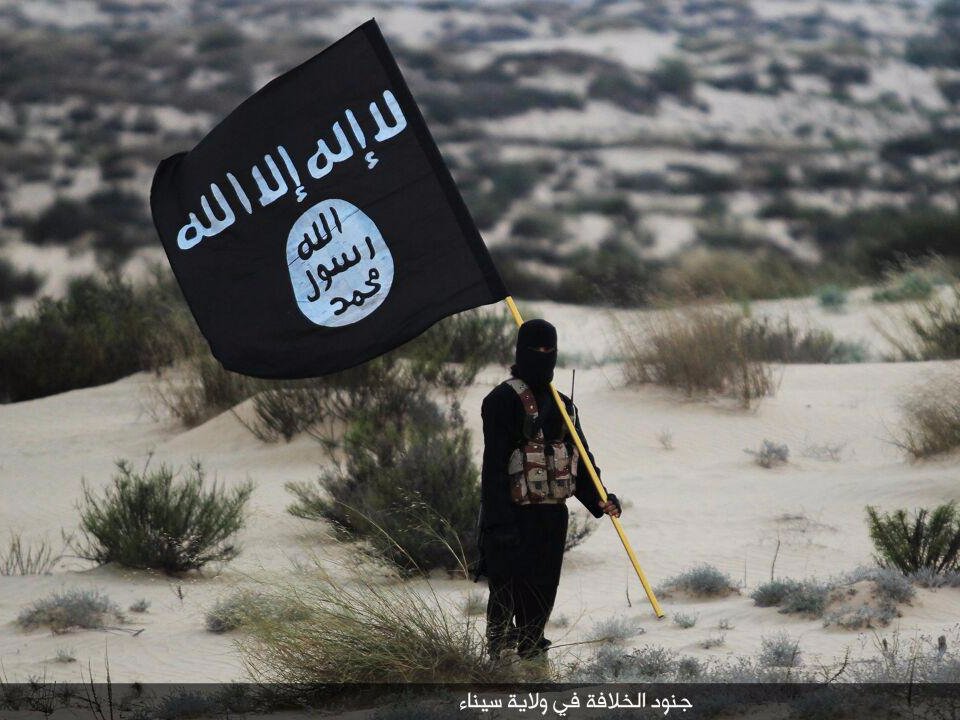
As ISIS loses ground in the Middle East, it might step up attacks on foreign countries in order to create the perception that it is winning, experts say.
The Friday-night attacks in Paris, in which terrorists killed 129 people and injured hundreds more as they took hostages, detonated suicide vests, and shot people across the city, could have been a move to distract from the losses ISIS (also known as the Islamic State) has taken in its core base of support.
"If an extremist group that has seized territory starts to lose it, it will be highly incentivized to turn to terrorist operations that allow for maximizing effects at a lower cost," Clint Watts, a fellow at the Foreign Policy Research Institute and former Army infantry officer, wrote for War on the Rocks.
By Sara Hussein AFP
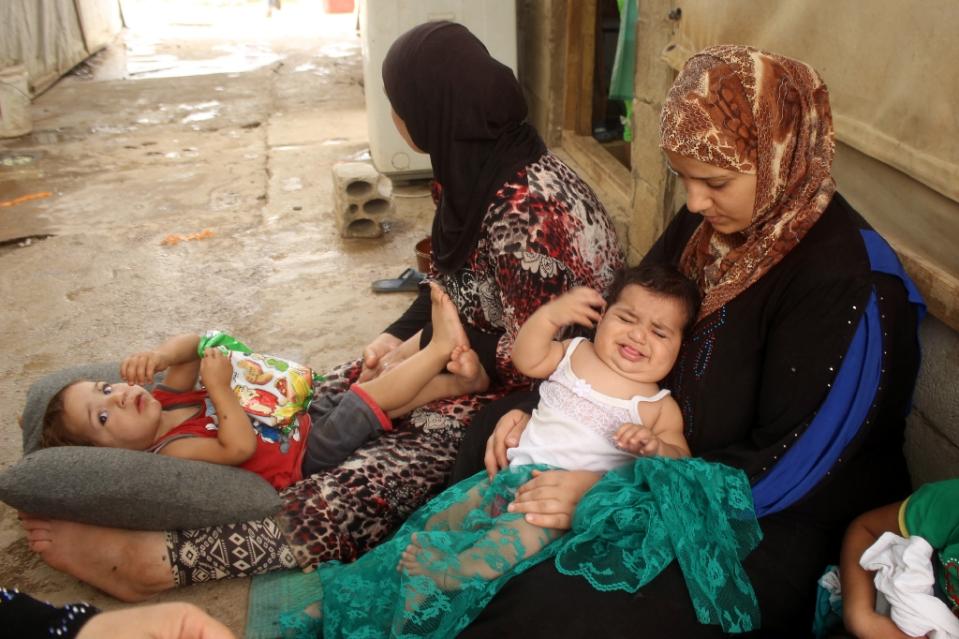
Taybeh (Lebanon) (AFP) – In a tent in Lebanon’s Bekaa Valley, Sanaa al-Absi extracts a condom from its wrapper in front of a group of giggling Syrian refugee women and begins explaining its use.
It is the first time some of the women have seen the contraceptive, which they are learning about as part of a rare programme teaching Syrian refugees family planning in Lebanon.
The subject is a sensitive one, strewn with cultural, religious and even political landmines.
In much of the Middle East, large families are seen as a blessing from God, and contraception is regarded with scepticism or outright hostility.
And in Lebanon, where an influx of 1.1 million Syrian refugees has strained resources and tempers, family planning can be misconstrued as a way to stem the growth of the displaced population.
#Egypt lights the pyramids to show solidarity with the people of #Lebanon, #France and #Russia #PrayForParis In the worst terror attack in Lebanon this year 43 people have died and 239 wounded after two blasts in the southern neighborhood of Beirut on Thursday. Our Middle East reporter, Kareem Shaheen, based in Beirut said “Isis[’s] aim […]
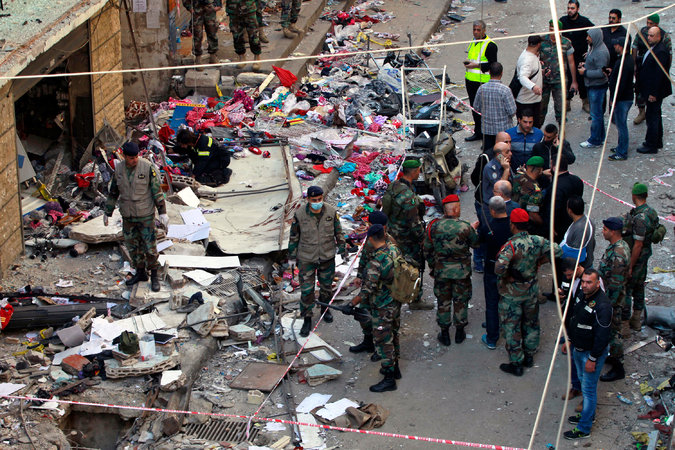
BEIRUT, Lebanon — Ali Awad, 14, was chopping vegetables when the first bomb struck. Adel Tormous, who would die tackling the second bomber, was sitting at a nearby coffee stand. Khodr Alaa Deen, a registered nurse, was on his way to work his night shift at the teaching hospital of the American University at Beirut, in Lebanon.
All three lost their lives in a double suicide attack in Beirut on Thursday, along with 40 others, and much like the scores who died a day later in Paris, they were killed at random, in a bustling urban area, while going about their normal evening business.
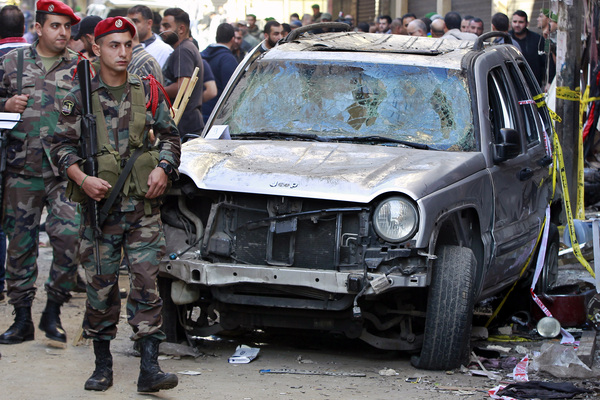
BEIRUT — Lebanese authorities arrested five Syrians and a Palestinian suspected of being implicated in the twin suicide bombings in central Beirut on Thursday that killed 43 people, a senior security source said on Saturday.
The bombings in a busy residential and commercial area that is a stronghold for Lebanese Shi’ite movement Hezbollah were claimed by Islamic State.
"Within 24 hours the network was arrested in the fastest uncovering of a bombing incident in the country," the source said. The explosions were the first attacks in more than a year to target a Hezbollah stronghold in Lebanon, as the Iran-backed group steps up its involvement in the war in neighboring Syria



